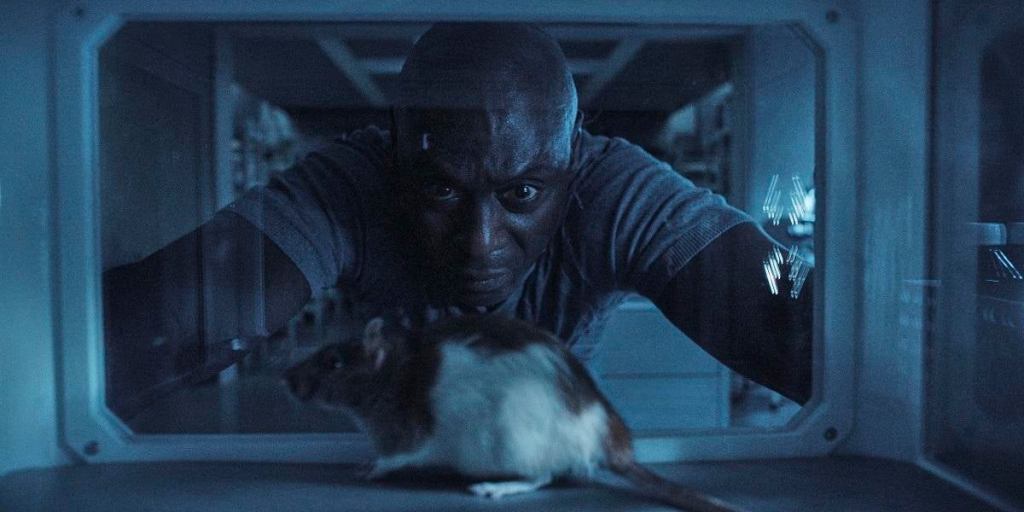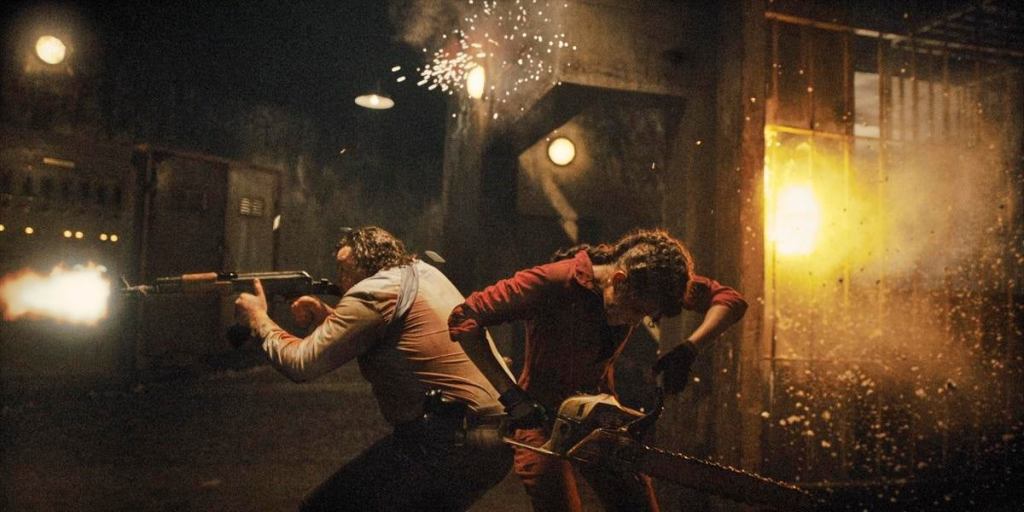Resident Evil adaptations often get a bad rap due to a number of reasons including but not limited to deviating so far from the feel of the games they originate from that they feel like completely different properties. After two or three entries following that trend, future projects – including Netflix’s Resident Evil show – seem to have a foreboding cloud looming over them where people expect repeat letdowns. The new Resident Evil series coming to Netflix certainly does take some liberties with extrapolating on the established narrative, and it’s rarely consistent in terms of episode-by-episode quality, but it has a surprisingly studious and commendable attachment to the games when it wants to do so.
Videos by ComicBook.com
The premise of Resident Evil makes no qualms about its plans to build on what we know of the franchise lore and go off on its own. It’s set partially in New Raccoon City in the year 2022 (the original Resident Evil game takes place in 1998 as a reminder of how far ahead this show is) and partially in the year 2036. If you can believe it, yet another catastrophe has thrown the world into zombie-filled mayhem by 2036 with “Zeroes” as they’re called in this show running rampant following Umbrella’s mishandled endeavors. Jade Wesker, one of Albert Wesker’s daughters, serves as the protagonist with her sister, Billie, and her father making appearances throughout the series alongside other new characters.
No matter what character(s) you get attached to in Resident Evil, know that there are no non-frustrating, unproblematic people in New Raccoon City and beyond. This isn’t really a world for “good” characters in either the present or future settings, but if there were some to look out for, the standouts from the first season are certainly Lance Reddick as Wesker and Turlough Convery as Richard Baxter. Convery is the best example of a conflicting character who you’ll root for nonetheless and puts on a supremely entertaining performance throughout his appearances. Reddick as Wesker, the character people are probably most curious about, similarly invokes a range of demeanors and behaviors that truly ramp up as the season comes to a close.

There’s a lot – and I mean a lot – of drama in Resident Evil that often deals with family, betrayal, and secrecy and is mostly relegated to the 2022 setting. Given that the show spends about half of its time there, that leaves quite a bit of downtime for those waiting for zombie chases and jumpscares even if it’s the cost to pay for necessary exposition. The scarcity of the zombies as well as character references made in the future setting do cheapen the stakes of the present-day narrative a bit, and it’s during that part of the show when Resident Evil fans will feel the least connected. If you can imagine the Resident Evil franchise as a whole being one-part campiness and one-part suspenseful horror and assign those traits to the past and present stories, respectively, you’ll have an idea of how the narrative jumps differ.
When those zombies are shown, however, they’re used with efficiency and always feel like the threat they should be even if you can operate under the assumption some characters will inevitably be protected by plot armor. The effects used to create unsettling growths and disfigured appearances on the Zeroes work surprisingly well, which probably wouldn’t have worked out had we been oversaturated with zombies everywhere all the time. Mutations like Lickers and some creative new creatures keep things fresh, and though the Zeroes are somewhere between the shamblers of Resident Evil and the frantic infected of 28 Days Later, it feels like a fair compromise for the tempo the show seeks.
While some might criticize the new narrative put forth in Resident Evil, it can’t be denied that the creators knew the Resident Evil lore well enough to lean on it time and time again. If you watch this series with a Resident Evil buff who knows the franchise inside and out, prepare to have them explain references to you numerous times, because Resident Evil is full of deep cuts ranging from brief glimpses of weapons and artifacts to off-handed comments that you’ll miss if you aren’t paying close attention. In that sense, it’s the kind of show that’ll make you want to revisit the games or fill in the gaps in your library if there’s one or two you’ve skipped out on.

Not everything can make the jump from games to TV, however, and the inconsistency between episodes is a clear indicator of that. In one particular episode, you have a spectacular humans vs. zombies showdown that’ll leave you thinking about it for the rest of the series in hopes that something else looks to top it. Immediately after that though is an episode focused largely on the puzzler aspect of Resident Evil where players are deciphering clues and inspecting objects to achieve their goals. It’s more of a letdown than a cooldown of an episode and plays out like you’re watching someone else trying to figure out a puzzle you already know the answer to. Try as it might to replicate the horror aspect of the source material, Resident Evil’s aforementioned plot armor affixed to its protagonists makes only about one in every five or so zombie attacks feel like there’s actually a threat of consequences.
Aside from its callbacks and strings to the past, Resident Evil’s story is uncharted territory. That doesn’t always work in its favor, but honestly, good on the creators for not just rehashing the same stories again which would’ve likely never met expectations anyway. The liberties taken with the story aren’t once that really contradict the past and instead pay great respects to it, and there are enough small setups for future events in the show to reward those who pay attention and those who are familiar with the franchise. Even when it misses, Netflix’s Resident Evil is one of the better Resident Evil adaptations and feels worth taking further.
Rating: 3.5 out of 5
Netflix provided all eight episodes of Resident Evil for review purposes.








